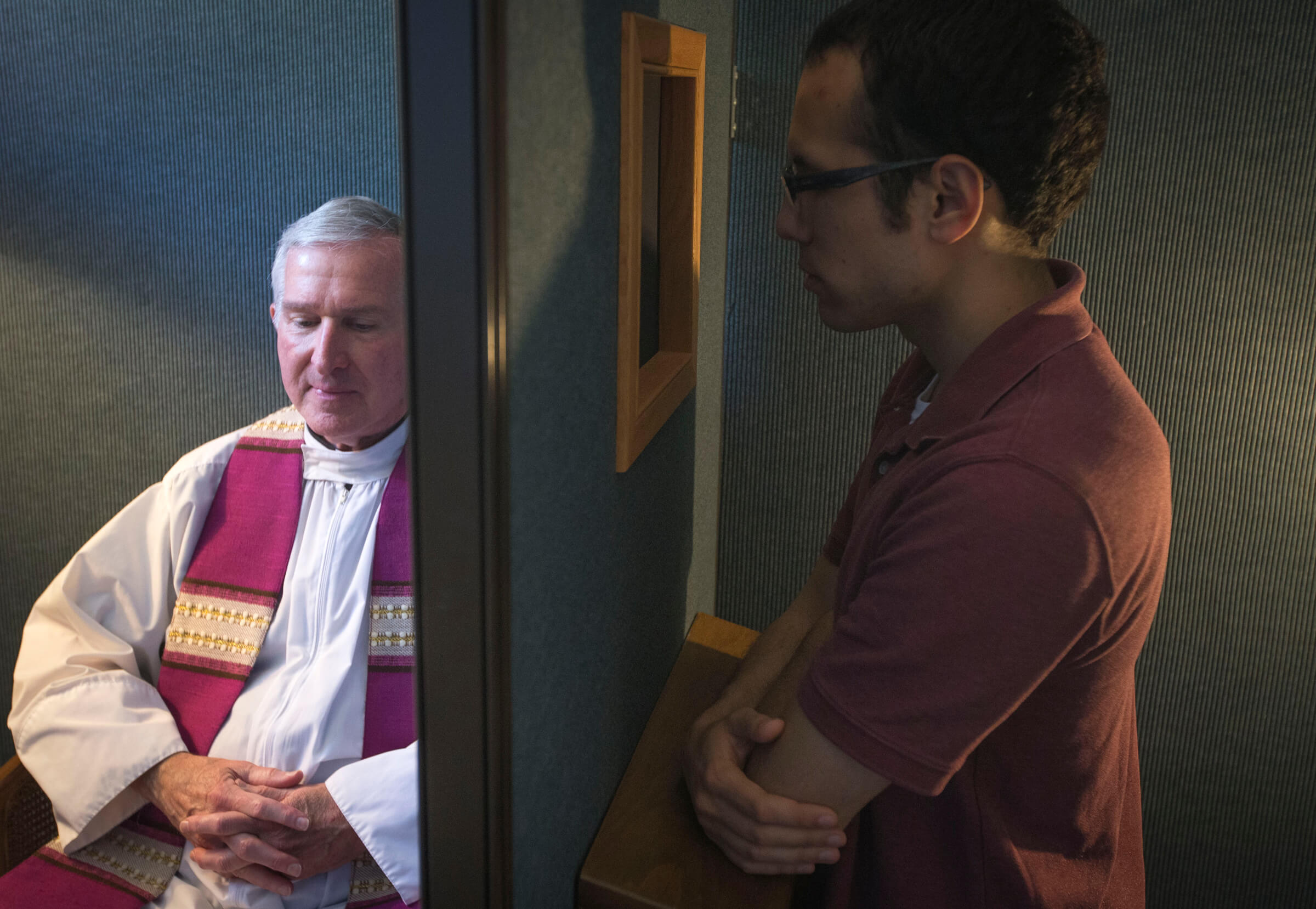Catholic facts
Top 10 reasons to go to Confession
The sacrament of reconciliation, commonly known as confession, is a foundational pillar of the Catholic faith. It provides Catholics with an opportunity to seek God’s forgiveness for their sins, find healing, and experience spiritual renewal. While the prospect of confessing one’s sins can be daunting, the benefits of this sacrament are immeasurable. In this extensive exploration, we will delve deep into the top 10 compelling reasons why you should make confession an essential part of your spiritual journey as a Catholic.
1. Forgiveness of Sins: Cleansing the Soul
The primary and most profound purpose of confession is the forgiveness of sins. When we approach the confessional with a contrite heart and sincerely confess our transgressions, we receive God’s mercy, and our sins are forgiven. This cleansing of the soul is a transformative experience, liberating us from the burdens of guilt and sin. Confession allows us to begin anew, rekindling our relationship with God and revitalizing our spiritual journey.
2. Spiritual Healing: Restoring Wholeness
Sin has a way of inflicting wounds on our spiritual well-being. It can lead to feelings of guilt, shame, and estrangement from God. Confession provides a path to spiritual healing, allowing us to mend our relationship with God and restore our sense of inner wholeness. It’s an opportunity to find healing for the wounds caused by our sins and to experience the profound grace of God’s reconciliation.
3. Examination of Conscience: Self-Reflection and Growth
Preparing for confession requires a rigorous examination of conscience. This process encourages self-reflection and self-awareness. It’s not merely about listing our sins but a profound opportunity for personal growth. As we examine our actions, motivations, and the areas where we need to improve, we deepen our self-awareness and commitment to spiritual growth.
4. Gratitude for God’s Mercy: An Act of Thanksgiving
Confession is an act of profound gratitude for God’s boundless mercy. By seeking God’s forgiveness, we recognize and acknowledge His loving and forgiving nature. It is an opportunity to express our thanksgiving for the grace He extends to us, even when we fall short. The act of confession becomes an embodiment of gratitude, an act of acknowledging and celebrating God’s unwavering love.
5. Reconciliation with God: Restoring the Relationship
Sin can create a divide between us and God. Through confession, we seek reconciliation with our Creator. We bridge the gap that our sins have created, allowing us to come closer to God, strengthen our connection, and reaffirm our faith. The sacrament serves as a tangible expression of our desire to rekindle the relationship with the Divine.
6. Reconciliation with Others: Repairing Broken Relationships
Confession is not solely about reconciling with God; it’s also about reconciling with our fellow human beings. Often, our sins have consequences that extend to others. Confession encourages us not only to seek forgiveness from God but also to seek reconciliation and make amends with those we may have hurt. It is a profound act of healing and restoration for our relationships with others.
7. Humility: Embracing Our Imperfection
Confession fosters humility, a virtue deeply rooted in the Catholic faith. It requires us to acknowledge our imperfections, sins, and shortcomings. This humility is a crucial aspect of the Christian journey, as it opens our hearts to God’s transformative grace. By humbling ourselves, we allow God to work within us and guide us toward spiritual growth.
8. Spiritual Guidance: Wise Counsel from the Priest
The priest, who serves as a guide and mediator in the sacrament of reconciliation, plays a pivotal role. Beyond the absolution of sins, the priest provides guidance, counsel, and support. In moments of spiritual doubt or when we grapple with particular sins, the priest offers wisdom and direction. The opportunity for one-on-one dialogue with a spiritual mentor is a unique aspect of the confession process, offering valuable insights and assistance in our journey of faith.
9. Regular Examination and Growth: A Lifelong Journey
The habit of attending confession regularly encourages a lifelong journey of spiritual growth and self-improvement. It is an ongoing process that keeps us accountable for our actions and encourages us to strive for a virtuous life. As we confess our sins and receive God’s mercy, we grow in self-awareness and strengthen our commitment to leading a life that reflects our faith.
10. Preparation for the Eucharist: Receiving the Body and Blood Worthily
The Eucharist, at the core of the Catholic faith, holds significant importance. Before receiving the Body and Blood of Christ in the Eucharist, it is essential to approach with a pure heart. Confession prepares us for this sacred act, ensuring that we receive the Body and Blood worthily. It cleanses our souls, allowing us to partake in the Eucharist with reverence, purity, and full awareness of the profound spiritual encounter that takes place during the Communion.
Conclusion
Confession, the sacrament of reconciliation, is not merely a ritualistic act of acknowledging one’s sins; it is a transformative journey of cleansing, healing, and spiritual growth. Through confession, we receive God’s forgiveness, seek reconciliation with Him, and repair broken relationships with others. The regular practice of confession cultivates humility, self-awareness, and a lifelong commitment to spiritual growth. It is an act of profound thanksgiving for God’s mercy and a testament to the Catholic belief in the transformative power of God’s grace. Embracing this sacrament is an integral part of the Catholic journey, allowing believers to walk the path of faith with a cleansed heart, a renewed spirit, and a profound connection to God’s boundless love and mercy.
About Author




























